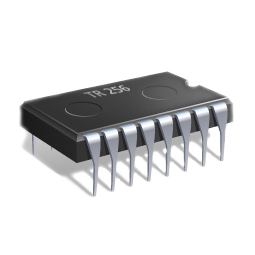VAR-SOM-OM35: Difference between revisions
From Variscite Wiki
No edit summary |
No edit summary |
||
| Line 16: | Line 16: | ||
|wire=1 Wire/HDQ | |wire=1 Wire/HDQ | ||
|description=The VAR-SOM-OM35 is a low-power, high performance System-on-module which serves as a building block and easily integrates into any embedded solution. It includes an extensive range of interfaces and communication protocols and is ready to run any embedded operating system such as Linux and Windows Embedded CE. | |description=The VAR-SOM-OM35 is a low-power, high performance System-on-module which serves as a building block and easily integrates into any embedded solution. It includes an extensive range of interfaces and communication protocols and is ready to run any embedded operating system such as Linux and Windows Embedded CE. | ||
|documentation= | |documentation= | ||
{{DocBox | {{DocBox|system=Linux | ||
|content= | |content= | ||
;Getting Started | ;Getting Started | ||
| Line 28: | Line 28: | ||
*[[VAR-SOM-OM35/7 Linux Display Driver |Display Driver]] | *[[VAR-SOM-OM35/7 Linux Display Driver |Display Driver]] | ||
*[[VAR-SOM-OM35/7 Linux Setting MPU Rate |Setting MPU Rate]] | *[[VAR-SOM-OM35/7 Linux Setting MPU Rate |Setting MPU Rate]] | ||
}}{{DocBox | }}<!-- | ||
-->{{DocBox|system=Windows | |||
|content= | |content= | ||
;Getting Started | ;Getting Started | ||
| Line 39: | Line 41: | ||
*[[Nand Flash Based File-systems Usage guidlines|Nand Flash Based File-systems- Usage Guidlines]] | *[[Nand Flash Based File-systems Usage guidlines|Nand Flash Based File-systems- Usage Guidlines]] | ||
*[[VAR-SOM-OM35/7 Windows SDK |SDK setup and Application Development]] | *[[VAR-SOM-OM35/7 Windows SDK |SDK setup and Application Development]] | ||
}}{{DocBox | }}<!-- | ||
-->{{DocBox|system=Hardware | |||
|content= | |content= | ||
;Getting Started | ;Getting Started | ||
Revision as of 00:13, 9 June 2020
VAR-SOM-OM35
The VAR-SOM-OM35 is a low-power, high performance System-on-module which serves as a building block and easily integrates into any embedded solution. It includes an extensive range of interfaces and communication protocols and is ready to run any embedded operating system such as Linux and Windows Embedded CE.
Linux
- Getting Started
- Building Linux Images
- Nand Reflashing scripts
- Uboot Environment Settings
- Boot From SD-CARD
- Splash Screen Support
- Kernel Configurations
Windows
Hardware
- Getting Started
Specs summary
| CPU | Texas Instruments OMAP3530 / OMAP3503, Cortex™-A8, 720 MHz x1 |
| Memory | 64MB - 256MB LP-DDR |
| GPU | PowerVR SGX530 Accelerated 2D and 3D |
| Display | RGB: 1400 x 1050 24-bit, Touch: 4-wire |
| Storage | Flash: 256MB SLC NAND |
| Network | Ethernet: 10/100/1000 Mbps |
| RTC | N/A |
| I2C | x2 |
| One-Wire | 1 Wire/HDQ |
| SPI | x1 |
| CAN bus | {{{can}}} |
| UARTs | x3, up to 3.6 Mbps |
| USB | USB 2.0 : 1x Host, 1x OTG |
| Audio | Analog Microphone, Line In/Out |
| Temperature Range | -40 to 85°C |
| Dimensions | 35.6 mm x 67.8 mm x 3 mm |



